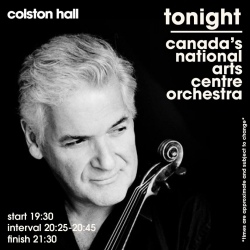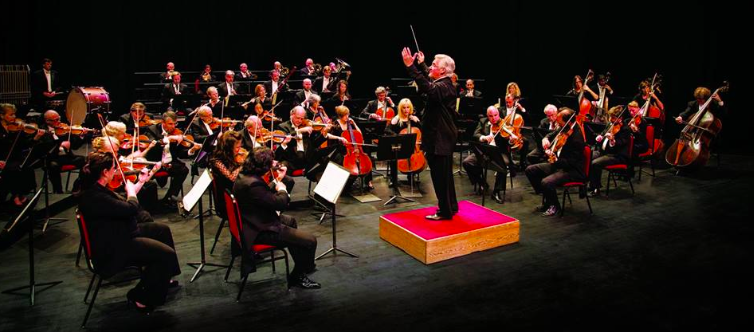The World Changed concert at the Colston Hall review

Posted on: 2014-10-31
Our rating:
The near-capacity audience left musically invigorated and nourished, and the final night of the orchestra's tour was a solid, sensational testament to their consummate playing in a satisfyingly gutsy, stunning programme.
The World Changed concert at the Colston Hall was a fitting, powerful tribute held to mark the centenary of the First World War.
The final night in a 10-day run for the National Arts Orchestra of Canada and conductor Pinchas Zuckerman, it was also to recognise the contribution of the Canadian troops to the war effort in the UK.
With a stunning and diverse cross-section of orchestral pieces, the purpose of the evening was to focus on the ways in which composers have responded to the emotional, physical and psychological complexities of war.

First off the bat was Vaughan Williams' sublime Tallis Fantasia, a heart-wrenchingly beautiful, evocative work which the musicians nailed masterfully through perfectly articulated ebbs and flows. The whole string section was tight and impeccable, divinely bringing out the deceptively simple dynamics, and absolutely nailing the work's carefully constructed spacial effects.
An unexpected treat came in the form of a newly commissioned piece, Brio, by Canadian composer John Estacio. The Toccata had a hint of John Adams' Short Ride in a Fast Machine, all staccato hits, trumpets blasts and mellifluous flutes, while its Fantasy section was a full-on musical barnstormer, evoking film music - in particular John Williams' trademark soaring strings - at its magical and uplifting best. A rollicking piece full of gusto, exuberance and idiosyncratic charm.
Bruch's First Violin Concerto was centrepiece of the programme, full of tenderness and warmth, ebullience and sparkle. Zuckerman doubled as violist, delivering a masterclass in performance with a whirlwind of dizzying virtuoso pyrotechnics, blending impeccably with the orchestra right down to its final declamatory fortissimo.
Elgar's Sospiri (Whispers) was a gossamer-light rendition of one of the English master's more subtle works, a million miles from the bombast and ceremony of his Pomp and Circumstances marches, and a noble, haunting lament and tender introduction into the second half.
But the musical piece de resistance came in the form of Beethoven's mighty Seventh Symphony, a towering, gargantuan masterwork that was given a flawless, tight interpretation by Zuckerman and his troops, from its vivacious first movement, terse allegretto, and triumphant brass statements of the finale.
Returning to the stage after a swell of thunderous applause, foot-stomping and hollers of 'Bravo!', Zuckerman and his orchestra treated the audience to an encore of Mozart's unmistakable, feisty Marriage of Figaro.
The near-capacity audience left musically invigorated and nourished, and the final night of the orchestra's tour was a solid, sensational testament to their consummate playing in a satisfyingly gutsy, stunning programme.
5/5
Reviewed by Jamie Caddick for 365Bristol
Article by:

Born and raised in the suburbs of Swansea, Jimmy moved to Bristol back in 2004 to attend university. Passionate about live music, sport, science and nature, he can usually be found walking his cocker spaniel Baxter at any number of green spots around the city. Call James on 078 9999 3534 or email Editor@365Bristol.com.

